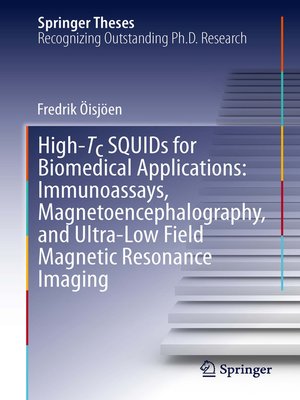High-Tc SQUIDs for Biomedical Applications
ebook ∣ Immunoassays, Magnetoencephalography, and Ultra-Low Field Magnetic Resonance Imaging · Springer Theses
By Fredrik Öisjöen

Sign up to save your library
With an OverDrive account, you can save your favorite libraries for at-a-glance information about availability. Find out more about OverDrive accounts.
Find this title in Libby, the library reading app by OverDrive.



Search for a digital library with this title
Title found at these libraries:
| Library Name | Distance |
|---|---|
| Loading... |
This thesis describes the challenging task of developing high critical temperature superconducting quantum interference devices (high-Tc SQUIDs) and using them as sensors for biomedical applications, including magnetic immunoassays, magnetoencephalography and magnetic resonance imaging (MRI). The first part of this work discusses the development of fast magnetic immunoassays, which can be used to improve the sensitivity, or to create new, unique point-of-care diagnostics systems. The second part shows that high-Tc SQUIDs might make magnetoencephalography more available, thus opening the field of high-Tc SQUID-based magnetoencephalography for recording brain functions. This technique can be combined with ultra-low field MRI which is discussed in the last part. This combination may provide a new unique tool for studies of brain functions. This work does not simply improve on existing technology but opens possibilities for novel advanced medical devices and techniques.







